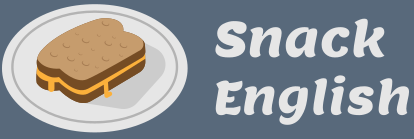
Hay múltiples formas de definir cantidades y, salvo excepciones como a lot, some, enough, any y otros que pueden usarse con cualquier frase, la mayoría se clasifican según si el sustantivo que acompañan es contable o incontable.
Se tratan de modificadores de cantidad y pueden ser sustantivos o adjetivos.
- a iota: un ápice, una pizca
- a little bit: un poquito
- a little/bit: un poco
- some: algo
- enough: suficiente
- a few: unos pocos
- several: varios
- much/many/a lot: mucho
- plenty/ample/quite a few: bastante, de sobra
- a bunch/slew: un montón
- a myriad/plethora: una gran cantidad
Expresiones coloquiales:
- a lick/pinch/dreg/smidgen: una pizca
- a hint of: una pizca, un toque
- a teensy bit: un poquitín
- a tad: un poquito
- a handful: un montón, un puñado
- loads/gobs/scads: montones
- a barrage: un aluvión
- gazillion: tropecientos
Respecto a much y many, hay que saber que much se usa para incontables y many para contables. Para saber más sobre contables e incontables puedes informarte en este artículo.
Ahora veamos qué cuantificadores podemos usar según la frase que formemos.
Cantidades para elementos incontables
El sustantivo incontable es azúcar (sugar) ya que en Español no podemos decir: un azúcar, dos azúcar, etc.
There is a little bit of sugar in the pantry
There is a little of sugar in the pantry
There is a bit of sugar in the pantry
There is some sugar in the pantry
There is enough sugar in the pantry
There is much sugar in the pantry
There is a lot sugar in the pantry
Es verdad que el primer ejemplo no suena muy bien pero espero que con el mismo contexto se entiendan. Para referirnos a cantidades muy pequeñas podemos decir que alguien no tiene ni un ápice o ni una pizca de algo.
She doesn't have an iota of interest
She doesn't have an ounce of interest
She doesn't have an inch of interest
Aplicados en otros contextos, también podríamos usar otras palabras como pinch (pizca) o handful (puñado).
Cantidades para elementos contables
En este caso el sustantivo contable es girasol (sunflower).
There are a few sunflowers in the field
There are several sunflowers in the field
There are enough sunflowers in the field
There are plenty of sunflowers in the field
There are ample sunflowers in the field
There are quite a few sunflowers in the field
There are a bunch of sunflowers in the field
There are a slew of sunflowers in the field
There are many sunflowers in the field
There are a lot of sunflowers in the field
There are a myriad of sunflowers in the field
There are a plethora of sunflowers in the field
En este caso también podríamos usar a single (un único), a couple (un par), scads (montones), etc.
Si quisieramos decir que no hay una cantidad de algo diríamos:
There is not any sugar in the pantry
There is not any sunflowers in the field
Otra manera sería con no en lugar de any: There's no sugar. Ambas formas de negar nos sirve.
Cantidades en sentido figurado
Desde un punto de vista más coloquial y metafórico, tenemos otros sustantivos como: a pile (una pila), a load (un montón), a ton (una tonelada), a mountain (una montaña), etc.
Jim has a pile of homework still to do
Jim has a load of homework still to do
Jim has a ton of homework still to do
Jim has a mountain of homework still to do
Tad
También podemos usarlo para distancias. Imagina que te subes al autobus y quieres decirle a alguien que se mueva un poco para que te deje sitio.
Could you please move over a tad so that I can sit down?
Podríamos usar a little bit en su lugar. La principal diferencia es que tad es más informal.
Barrage
Un aluvión o una avalancha de objetos en movimiento de forma constante. Es una cantidad grande y contínua.
The sun expelled a barrage of charged particles.
A hint of
Hablamos de que algo tiene una cantidad mínima, un toque, una esencia.
She smells of vanilla with a hint of cinnamon.
Otra alternativa sería a touch of.
A lick of
Una pizca, casi nada, un poco. Es más informal que a hint of.
The programmer created the website without writing a lick of javascript.
Teensy bit
Parecido a little bit. Es una manera informal de enfatizar que algo tiene muy poca cantidad.
I was a teensy bit of a cheater on the math test.
Gobs
Grandes cantidades de algo. Sinónimo menos común de lots y loads.
Enjoy the game with gobs of new characters.
¿Cómo preguntar cantidades?
Usaremos how much y how many. Ambas significan ¿cuánto/a ...? refiriéndonos a alguna cantidad de algo.
How much (incontable)
"How much advice do you need? It's easy, you just do what makes you happy."
How many (contable)
"How many chickens do you have in the farm? How many of them have laid eggs?"
Ahora veamos el uso de algunos de los cuantificadores aplicado en oraciones.
Afirmativa
"On that hill, where there are plenty of trees, my uncle has a cow that eats as much as its body would allow."
Negativa
"Hellen didn't add a pinch of salt to the soup and now it tastes a bit bland."
Interrogativa
"Will Steve bring a handful of blueberries from supermarket as I asked him?"
Hasta aquí concluyo el resumen de esta breve guía. Si conocéis más palabras o frases que se usen habitualmente podéis dejarlas en los comentarios.

